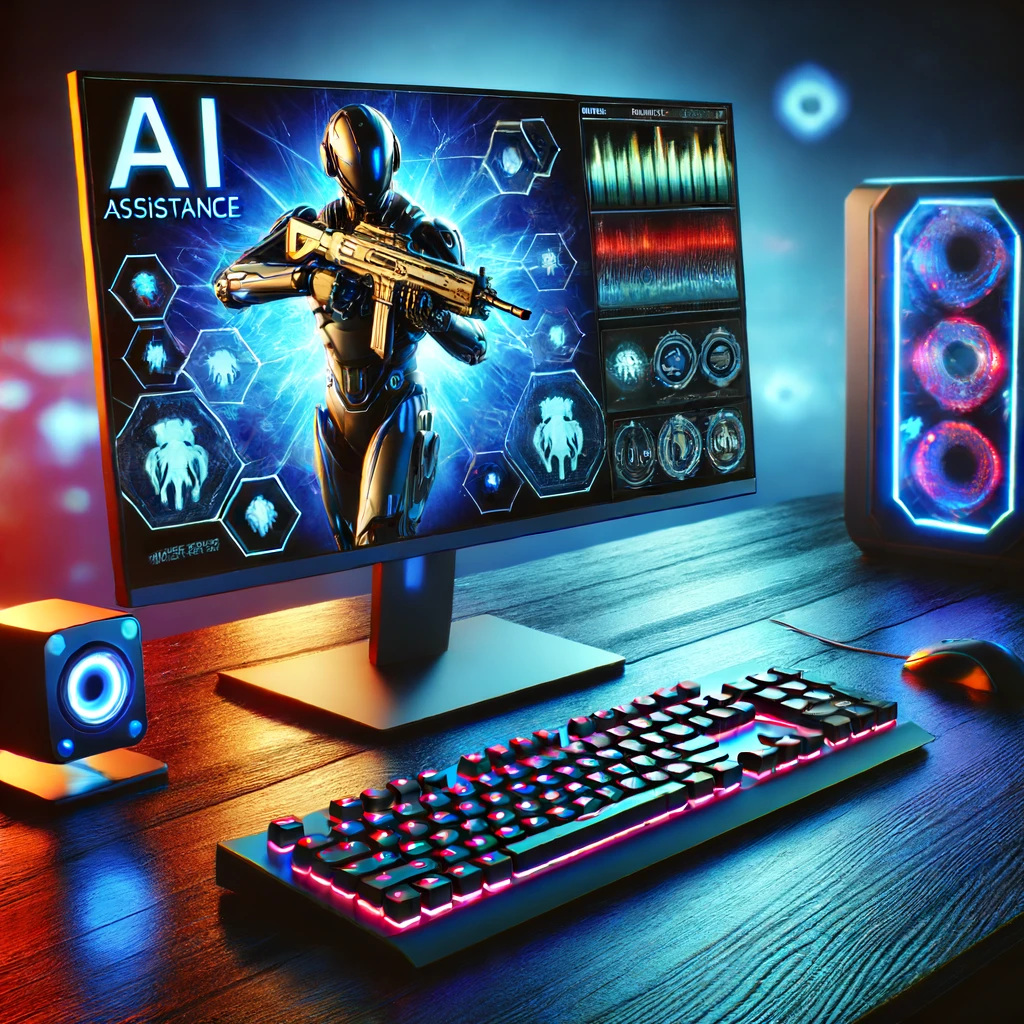AI Gaming Monitor: Friend or Foe? Exploring the Ethics of AI Assistance in Gaming
Imagine a monitor that gives you a leg up in competitive games by spotting enemies for you. This is the reality of MSI’s new AI gaming monitor, but is it a game-changer or a game-breaker?
The Rise of the AI Teammate
The future of gaming is here, and it comes with a built-in AI assistant! MSI’s groundbreaking MEG 321URX QD-OLED monitor boasts “A.I. Sky Sight,” a technology that uses machine learning to detect enemies and highlight them on screen. But is this a welcome innovation, or a slippery slope towards cheating? Let’s delve into the pros and cons of AI assistance in gaming.
MSI’s MEG 321URX QD-OLED monitor introduces a new era of AI-enhanced gaming. The A.I. Sky Sight technology is designed to give players a competitive edge by using advanced machine learning algorithms to identify enemies and visually highlight them on the screen. This groundbreaking feature promises to change how we experience competitive gaming.
Advantages of AI Assistance
The potential benefits of AI in gaming are vast. For starters, AI features like enemy highlighting could help level the playing field for new players or those with visual impairments, making games more accessible and inclusive. This technology could enhance the gaming experience for a broader audience, ensuring everyone can enjoy their favorite games.
Moreover, AI assistance can reduce the learning curve for new players, providing valuable in-game support that helps them understand and engage with the game’s mechanics more effectively. This can lead to a more enjoyable and less frustrating gaming experience, encouraging more people to take up gaming as a hobby.
Blurring the Lines: Is This Cheating?
However, the introduction of AI assistance raises significant ethical concerns. One of the primary questions is whether highlighting enemies gives players an unfair advantage. In competitive gaming, where skill and quick reflexes are paramount, using AI to detect enemies could undermine the challenge and skill required to succeed.
Many argue that this is a form of cheating, as it provides players with information that they would not otherwise have, potentially skewing the competition in their favor. This blurring of the lines between fair play and technological assistance could lead to contentious debates within the gaming community about what constitutes cheating.
The Future of AI in Gaming
Looking ahead, it’s clear that AI will become a more prominent feature in gaming monitors and other peripherals. As technology continues to evolve, we can expect to see more sophisticated AI-driven features designed to enhance the gaming experience. However, the gaming industry must ensure a balance between innovation and fair play.
Clear regulations and guidelines regarding AI-powered features in competitive games will be essential to maintaining the integrity of the competition. The gaming community, developers, and industry leaders must work together to define what is acceptable and ensure that technological advancements do not undermine the spirit of fair play.
What do you think?
What do you think about AI assistance in gaming? Is it a helpful tool or a detriment to fair play? We want to hear your opinions!
Would you use an AI gaming monitor that highlights enemies? Why or why not? Share your thoughts and join the conversation about the future of AI in gaming.







